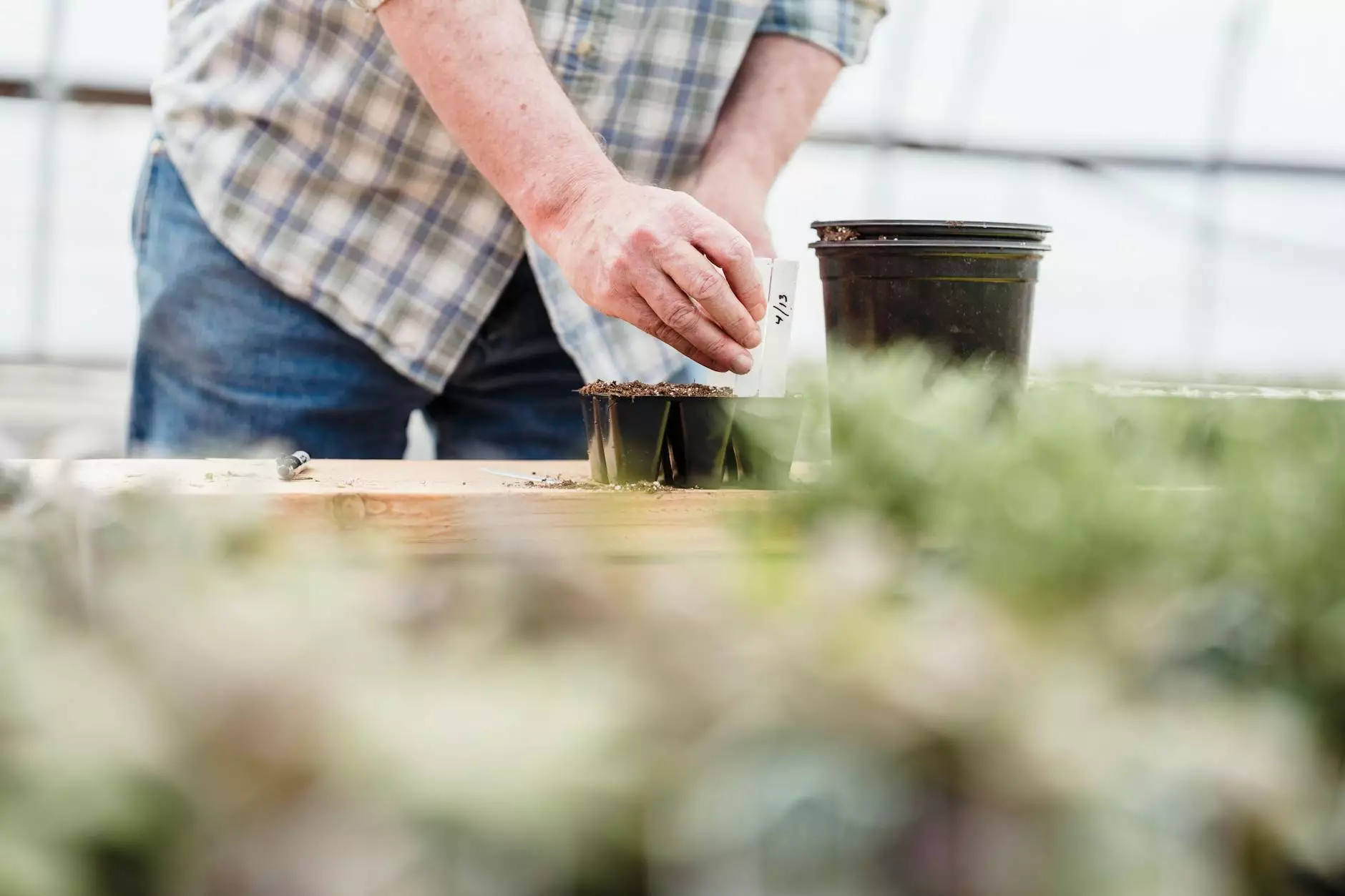Composting: Creating Nutrient-Rich Soil for Your Plants

Welcome to Festivals Bazar's eCommerce & Shopping platform, where we provide you with valuable information on a wide range of topics. In this section, we delve into the fascinating world of composting. Discover the benefits, methods, and tips for successful composting that will help you create nutrient-rich soil for your plants.
The Benefits of Composting
Composting is a natural process that converts organic waste into a nutrient-rich substance known as compost. The benefits of composting are plentiful and extend to both the environment and your gardening endeavors. Here are some key advantages:
- Improved Soil Structure: Compost enhances the structure of your soil, promoting better water retention and aeration. It creates a perfect habitat for beneficial organisms, including earthworms.
- Nutrient-Rich Soil: Compost is teeming with essential nutrients that plants need to thrive, such as nitrogen, phosphorus, and potassium. It acts as a natural fertilizer, reducing the need for chemical alternatives.
- Reduced Landfill Waste: By composting organic waste instead of throwing it away, you contribute to reducing the amount of waste sent to landfills. This, in turn, helps to minimize greenhouse gas emissions.
- Cost Savings: Composting at home eliminates the need to purchase expensive commercial compost or chemical fertilizers. It's a cost-effective way to boost the health of your garden.
- Environmental Sustainability: Composting is an eco-friendly practice that aligns with sustainable living principles. It fosters a circular economy by reintroducing organic matter back into the soil and reducing the reliance on synthetic products.
Getting Started with Composting
If you're new to composting, fear not! It's a straightforward process that can be easily implemented in your own backyard. Follow these simple steps:
Step 1: Choose a Composting Method
There are several composting methods available, depending on your specific needs and resources. The most common ones include:
- Backyard Composting: Suitable for small-scale composting, backyard composting involves creating a compost pile or using a compost bin.
- Vermicomposting: Ideal for indoor composting or if you have limited outdoor space, vermicomposting utilizes worms to break down organic waste.
- Trench Composting: In trench composting, you dig a trench in your garden and bury organic waste, allowing it to decompose directly in the soil.
- Bokashi Composting: Bokashi composting utilizes a special blend of microorganisms to ferment organic waste in an airtight container.
Step 2: Collect Organic Waste
Collect organic waste from your kitchen, garden, and yard. Examples of organic waste suitable for composting include fruit and vegetable scraps, coffee grounds, tea leaves, eggshells, grass clippings, and dry leaves. Avoid adding meat, dairy products, oily foods, or pet waste to your compost pile, as they can attract pests or cause odor issues.
Step 3: Build Your Compost Pile
Layer the organic waste with dry materials such as leaves, straw, or shredded newspaper to create a balanced compost pile. The ideal carbon-to-nitrogen ratio, also known as the C/N ratio, is around 25-30:1. Achieving the right balance ensures optimal decomposition and prevents unpleasant smells.
Step 4: Maintain and Turn Your Compost
Maintain your compost pile by regularly turning it with a pitchfork or compost aerator to aerate the materials and accelerate the decomposition process. Ensure proper moisture levels by occasionally watering the pile if it becomes too dry.
Step 5: Harvest and Use Your Compost
After several months, your compost should transform into a dark, crumbly substance with an earthy smell. Harvest the compost by sifting it through a mesh screen or use it directly in your garden beds and containers. Your plants will thank you for the nutrient boost!
Tips for Successful Composting
Here are some additional tips to help you achieve successful composting:
- Avoid Invasive Weed Seeds: Be cautious when composting weeds, as some seeds may survive the composting process. Avoid adding weeds with invasive tendencies to prevent spreading them in your garden later on.
- Balance Greens and Browns: Maintain a balance between green nitrogen-rich materials, such as kitchen scraps, and brown carbon-rich materials, such as dried leaves. This ensures proper decomposition and prevents unpleasant odors.
- Monitor Moisture Levels: Compost should be moist, like a damp sponge. If it becomes too dry, sprinkle some water. If it gets too wet, add dry materials or turn the pile to improve aeration.
- Chop or Shred Large Materials: To expedite the composting process, chop or shred large organic materials into smaller pieces. This increases the surface area and accelerates decomposition.
- Rotate and Use Multiple Compost Bins: Consider using multiple compost bins for efficient composting. You can rotate between them, allowing one to decompose while adding fresh materials to another.
Conclusion
In conclusion, composting is a highly beneficial and sustainable practice that allows you to transform organic waste into valuable compost for your plants. By enriching your soil with nutrient-rich organic matter, you can cultivate healthy and vibrant gardens while also contributing to environmental conservation.
Explore the world of composting on Festivals Bazar's eCommerce & Shopping platform and embark on a journey towards sustainable gardening.










